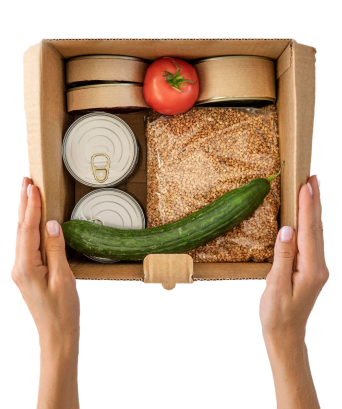MEET OUR
Clients
Fact or Fiction? The Dependence Myth
Many people believe that food banks provide a hand-out, rather than a hand-up. The idea that food banks create dependence among the people they help is a common one – but how does it hold up against the facts?
At the national level, Food Banks Canada’s 2013 HungerCount study suggests that there is a continual flow of people into and then away from food banks, with a minority accessing help for longer periods.
At the national level, Food Banks Canada’s 2013 HungerCount study suggests that there is a continual flow of people into and then away from food banks, with a minority accessing help for longer periods.

In 2024
124,861
We served 124,861 individuals
3,934
New clients served in 2024.
43%
43% of our clients visited 6 times or fewer, in the last 12 months.

Given that food bank use goes up and down with economic cycles rather than simply increasing year after year, and that usage is relatively stable through any given year, we know that these new clients in large part replace those who have stopped asking for help.
We can confidently say that the food bank-dependence theory is false; Most want to better themselves and their lives, and will use the help that is available only for as long as they need it.
We can confidently say that the food bank-dependence theory is false; Most want to better themselves and their lives, and will use the help that is available only for as long as they need it.
